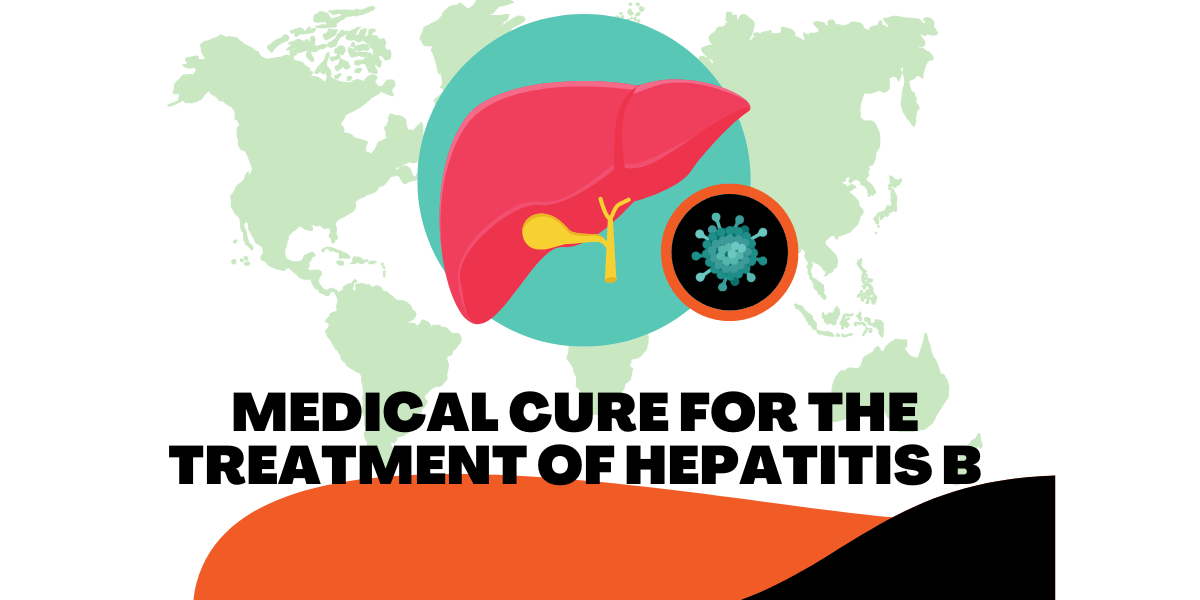Medical Cure for the Treatment of Hepatitis B
Medical Solutions: Effective Treatments for Hepatitis B
Hepatitis B, a viral infection that affects the liver, demands careful attention and targeted medical intervention for effective management. As medical science advances, so do the options available to combat this condition and improve the lives of those afflicted. In this article, we’ll explore the medical cures and treatments that medical professionals employ to navigate the complexities of Hepatitis B, shedding light on the strategies designed to combat the virus and enhance patients’ well-being.

1. Antiviral Medications: Suppressing the Virus
Antiviral medications constitute a fundamental component of Hepatitis B treatment. These medications work by impeding the virus’s ability to replicate, thus reducing its impact on the liver. Widely used antiviral drugs include entecavir, tenofovir, and lamivudine. A medical practitioner tailors the prescription according to factors such as viral load, liver function, and the patient’s overall health.
2. Interferon Therapy: Boosting Immune Response
Interferon therapy stands as an alternative treatment approach for Hepatitis B. This method involves injecting synthetic interferons, which are proteins that bolster the body’s immune system to combat viral infections. Interferon therapy is often considered for specific cases and necessitates vigilant monitoring due to potential side effects.
3. Combination Therapy: Maximizing Effectiveness
Medical professionals might opt for a combination therapy approach, either involving a blend of antiviral medications or a combination of antiviral drugs and interferon therapy. The objective is to amplify treatment effectiveness and minimize the risk of drug resistance. This personalized approach adapts to the patient’s response and unique requirements.
4. Liver Transplant: Addressing Severe Cases
In instances of advanced liver damage resulting from Hepatitis B, a liver transplant may be contemplated. This procedure entails substituting the damaged liver with a healthy liver from a donor. Reserved for severe cases where other treatments have proven insufficient, a liver transplant offers a chance for improved liver function and overall health.
5. Regular Monitoring and Adjustment
Consistent monitoring is indispensable for effective Hepatitis B management. Regular tests assess viral activity, liver function, and overall health. Based on these results, medical professionals make necessary adjustments to treatment plans. This approach ensures that the chosen treatment remains efficacious and minimizes the risk of complications.
Although a definitive cure for Hepatitis B remains elusive, the arsenal of medical treatments empowers patients to manage the virus effectively and mitigate its impact on the liver. The selection of treatment hinges on variables like the patient’s health status, the infection’s stage, and the extent of liver damage. Collaboration with healthcare professionals is pivotal for devising a tailored treatment plan.
Amidst medical advancements, individuals grappling with Hepatitis B possess an array of options to manage their condition and enhance their quality of life. Regular medical evaluations, adherence to prescribed regimens, and a health-conscious lifestyle collectively contribute to better outcomes and a brighter horizon for those affected by Hepatitis B. Always prioritize open dialogue with healthcare providers for informed and personalized care.




